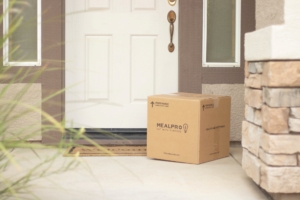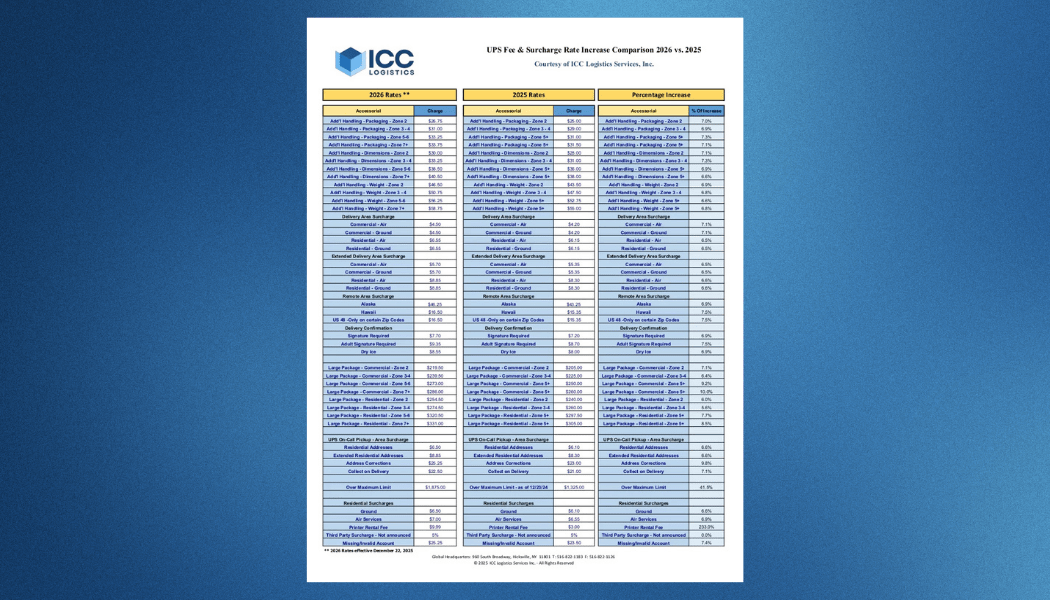“Your order has been delayed.” These are 5 words that e-commerce consumers hate to hear or see!
Anyone that has ever experienced a delay in receiving something they ordered knows how frustrating this can be. Unfortunately, in todays challenged Supply Chain environment, delays have become all too common.
There are a large variety of things contributing to a spike in the time it is taking for consumers to receive their orders these days. These include challenges with obtaining raw materials, Covid driven shut downs, worker shortages, Port congestion, cost reduction efforts, along with Carrier capacity issues to name just a few.
Given the wide range of supply chain challenges, shippers are left wondering what they can do to minimize the pain, suffering and anxiety that their customers are feeling due to the uncertainty that exists in the world. After all you can only control what is controllable.
So what are the controllable factors that a shipper should consider to help drive customer loyalty?
- Honesty- It is extremely important to always be honest and upfront with customers. For example; If you don’t have the item in stock and can’t provide delivery to the customer within a reasonable amount of time, don’t take the order. Or at the very least, let the customer know when they can expect delivery prior to check-out, and allow them to decide if they can wait.
There is nothing worse than allowing a customer to use their valuable time to enter an order, only to receive later notification that the order could not be fulfilled. This can contribute to customers losing trust in your company/brand.
It is important that shippers are honest with customers throughout the purchase and post purchase process. After all, Honesty builds Trust, Trust builds Loyalty, and Loyalty leads to more Sales!
- Communication- Once you have the order, it is now up to your Fulfillment operation and Carriers to get the order moving and delivered within the expected time frame. Unfortunately, these two things are not completely controllable. So, the bottom line is that you need to have a solid communication process in place, to inform your customer of these unanticipated delays.
As mentioned above, customers hate hearing that their order has been delayed. However, they hate not hearing anything even more! There is nothing worse than having a customer reach out to you proactively with a “Where is my order” called a (WISMO call). Having an order delayed without explanation or notification to the customer, it is like rubbing salt in a wound.
Shippers should consider implementing an internal process that notifies customers when there are delays prior to shipping. If/ when this occurs, the customer should be quickly notified. A simple email that informs the customer of the unanticipated delay will take a lot of pain out of the process. The message should be honest, apologetic, but upbeat. For example, the message could read:
“Sorry, but we were caught off guard with the popularity of our products. This has caused a delay in our ability to ship your order today. We know that you are excited about receiving your order, so our operations team is making every effort to get this shipped ASAP. We apologize for this delay, and are committed to insuring there are no further delays. Once again we apologize for any inconvenience and disappointment that this is causing for you. “
Or
“We tried our best to get your order out today, however we were not able to do so.  We have prioritized your order and have confirmed that it will go out tomorrow. We know that you are anxious to receive our product, so we apologize for the frustration this may cause. Please be assured that we value your business and are equally disappointed that we could not get it shipped today.”
We have prioritized your order and have confirmed that it will go out tomorrow. We know that you are anxious to receive our product, so we apologize for the frustration this may cause. Please be assured that we value your business and are equally disappointed that we could not get it shipped today.”
Similarly, Shippers need to have a process in place to inform customers when there are carrier driven delays. It is important for shippers to differentiate between Fulfillment vs Carrier delays. It has become somewhat of a common practice for shippers to point all delays towards their Carriers. Shippers often provide a tracking number to a customer even before the order has left their Distribution Center. So, customers often assume that all delays are due to carrier issues.
This is a great way to deflect away from your company. However, this could be equally damaging to the customer’s perception of your company/ brand. Customers are a lot more savvy these days. So, when they track a package in a carrier’s system and only see a “Label Created” event, it is likely that they will know that the shipper has not handed the package over to the carrier. So, failing to be honest regarding the nature of the delay, could be just as damaging as the delay itself. Furthermore, if the blame for delays is always passed onto the carrier, customers will be left thinking “Why do they use this carrier if there are constant delays?”
Implementing notifications for carrier delays should be an easy lift for most shippers if they are using the larger Integrated Carriers like FedEx and UPS. Both of these companies have off the shelf proactive notification products that are fairly easy to implement. Additionally, for shippers using a variety of carriers, regional carriers, or the USPS, there are a host of Post Purchase technology companies that can provide visibility and pro-active notification services. So, either way, it should be fairly simple to engage a process to inform customers when there are carrier delays. The cost to implement these processes often pays for itself due to the reduction of cost associated with the reduction in WISMO calls that this will drive.

When properly implemented, your customer will automatically receive notification of delays directly from your carriers. However, as an added step you may want to consider sending a direct communication from your company to acknowledge the issue and assure the customer that you are working on it. An email might read as follows;
“We notice that your order has been delayed due to an issue with our Carrier. Please be assured that we are working with them to help minimize this delay. We value your business and are committed to providing timely delivery for all of your orders. We apologize for the inconvenience that this may cause for you.”
- Choice – let’s face it. There are a lot of choices to make in the Supply Chain and Logistics world to help control the controllable. Shippers need to choose the right Fulfillment options, Carriers, and Technology to insure that they minimize issues. Shippers need to make the right decisions to help drive a best in class customer experience.
Questions that need to be answered include;
-Should we insource or outsource our Fulfillment operations?
-If outsourcing, who should we use?
-Where should our Distribution Center(s) be located?
-What carriers can contribute to the best customer experience?
-What technology should we use to help drive a best in class customer experience?
-How will we measure the effectiveness of the choices that we have made?
Surveys have shown that a negative customer experience is the reason 86% of consumers quit doing business with a company, and that good customer experiences lead 42% of consumers to purchase again. So it is imperative that shippers make the right decisions to minimize problems, and to have the right processes in place when problems do occur.
We know that making the right decisions can be a daunting task for shippers given the complex web of companies that exist in the Supply Chain & Logistics space. Thankfully there are companies that have a great deal of experience and insight that can help shippers make the right choices.
Please reach out to ICC Logistics to find out how we can help drive a successful Customer growth and acquisition strategy, and contribute to your company’s success.



 to receive our FREE white papers:
to receive our FREE white papers: